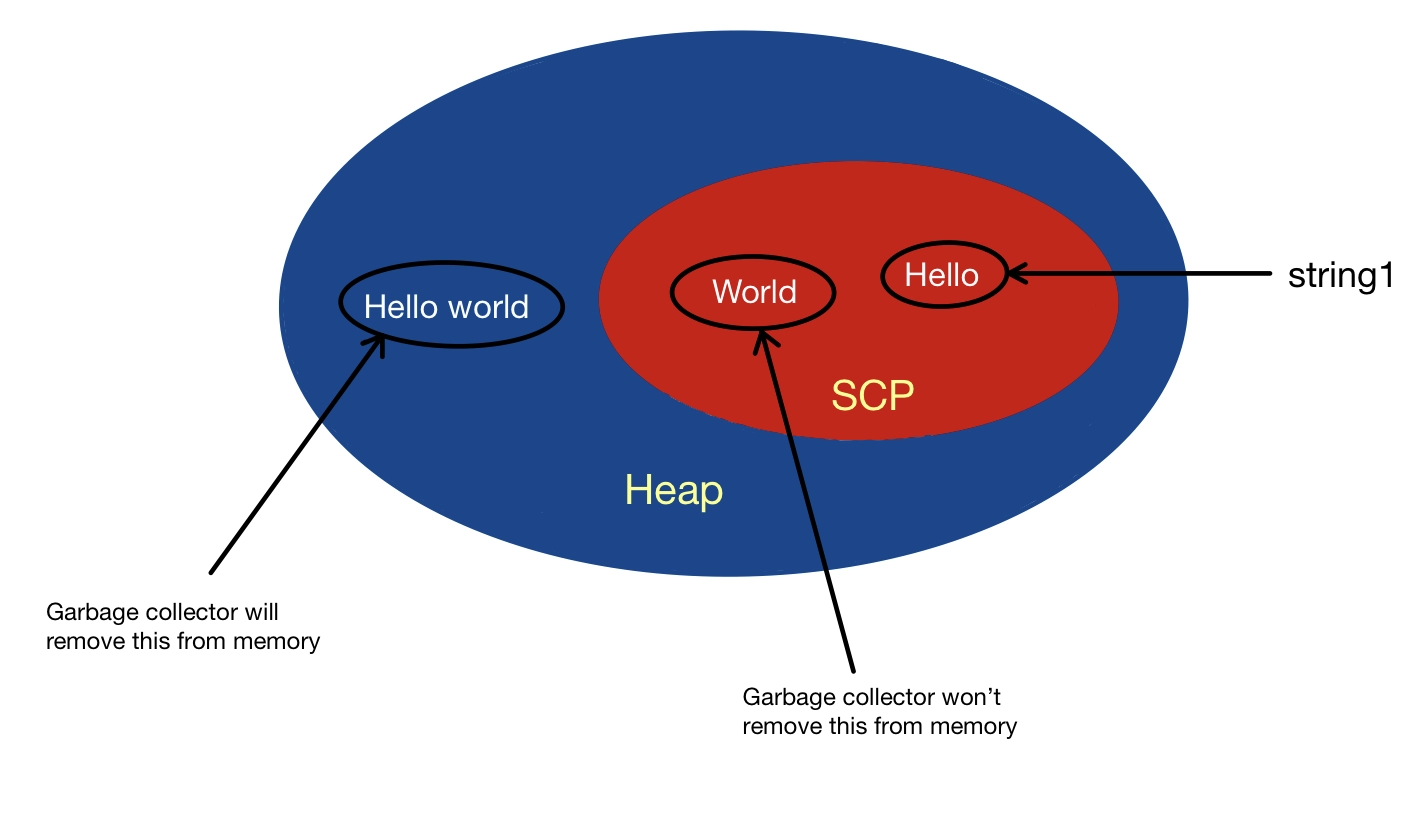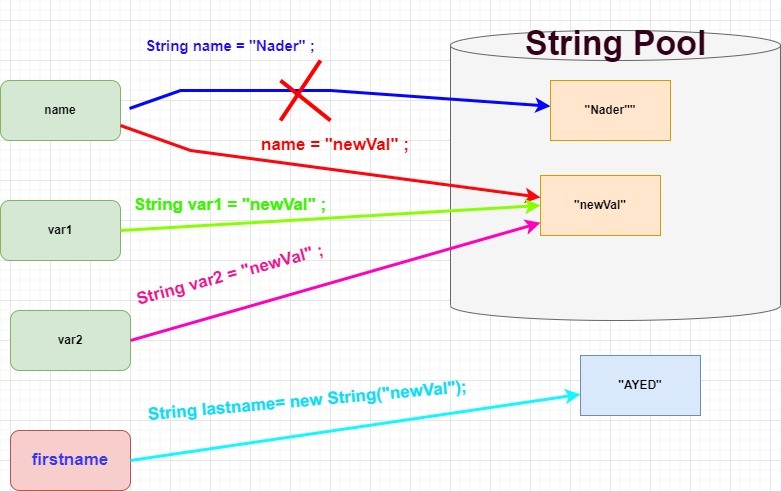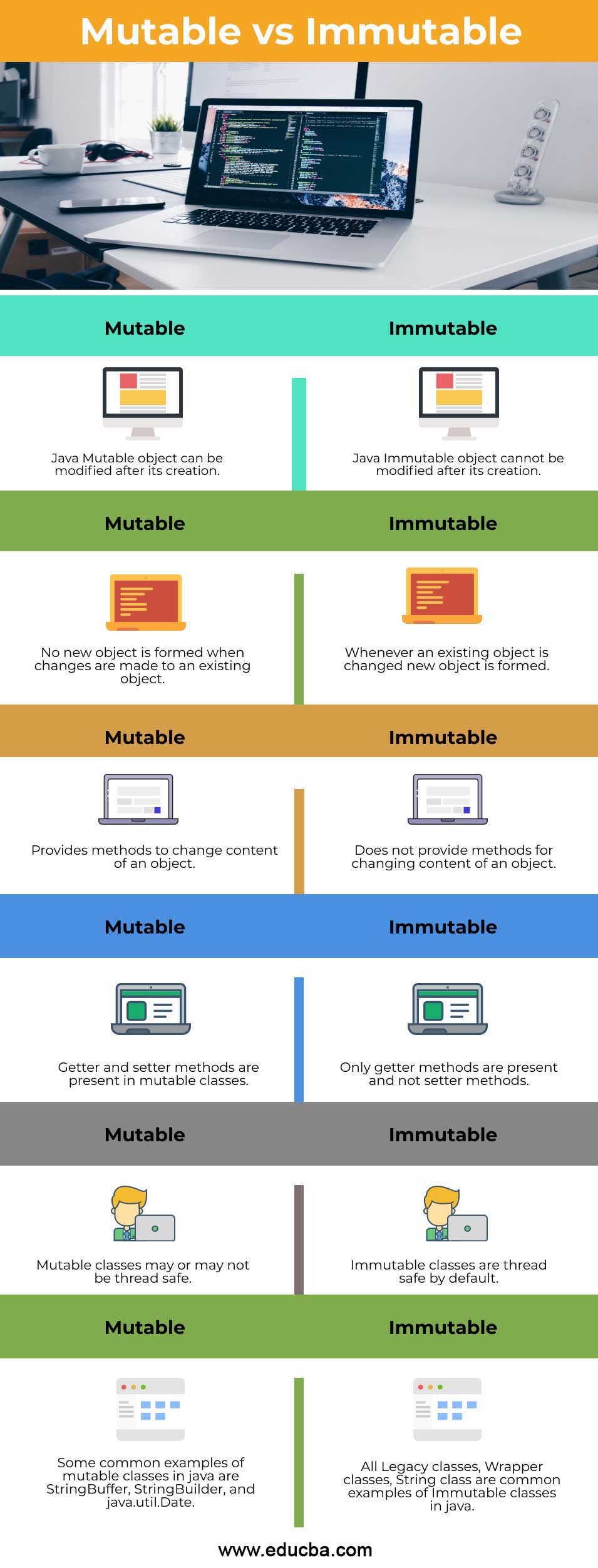What Is Unalterable Strings and How It Works
In the realm of programming, recognizing the principle of immutable strings is vital for developing robust and secure applications. Unalterable strings refer to strings that can not be changed after they are created, making certain data integrity and predictability within the code. This basic concept plays a crucial role in different programming languages and uses an unique approach to handling data. By discovering the details of just how unalterable strings function, one can reveal a globe of benefits and opportunities that can boost the top quality and effectiveness of software program advancement.
The Basics of Unalterable Strings
Unalterable strings, as an essential idea in shows, are personality sequences that can not be altered when they are produced. This suggests that when a string is appointed a worth, that value can not be changed. In languages like Python and Java, strings are immutable items, causing various effects in terms of memory monitoring and data honesty.
One of the vital benefits of unalterable strings is that they provide a complacency in information manipulation. Since the web content of an unalterable string can not be modified, it makes sure that the original information stays undamaged, lowering the risk of unintended modifications during program implementation (Why are strings immutable in Java?). This residential or commercial property also streamlines debugging procedures, as developers can trust that as soon as a string is defined, its value will certainly not be accidentally altered
Moreover, immutable strings help with effective memory use. When a new string is produced based on an existing one, as opposed to customizing the original string, the brand-new value is stored separately. This strategy improves performance by minimizing memory fragmentation and streamlining memory appropriation procedures. On the whole, comprehending the fundamentals of unalterable strings is important for grasping shows principles and optimizing code efficiency.
Benefits of Unalterable Strings
Structure upon the security and performance advantages of immutable strings, their benefits encompass enhancing code integrity and simplifying simultaneous programming tasks. By being unalterable, strings can not be changed after production, which eliminates the risk of unexpected modifications in the information they keep. This intrinsic immutability makes certain that as soon as a string is produced, its value remains constant throughout the program's implementation, lowering the possibilities of bugs brought on by unforeseen modifications.
Furthermore, immutable strings add to code dependability by making it simpler to reason regarding the state of a program. Because strings can not be transformed, developers can rely on that a string will always hold the exact same value, simplifying debugging and upkeep initiatives. This predictability brings about extra reputable and steady codebases.

Application in Programming Languages
Within numerous programming languages, the unification of unalterable strings is an essential facet that impacts just how information is dealt with and adjusted within code visit this web-site structures. The execution of immutable strings differs across various programming languages, with each language supplying its own systems to sustain this concept.

On the other hand, languages like C and C++ do not have integrated assistance for immutable strings. Programmers in these languages need to manually execute immutability by applying policies within their code to prevent direct adjustments to string items.
Ideal Practices for Dealing With Immutable Strings
When managing immutable strings in programming languages like Java and Python, adhering to best methods guarantees secure and reliable information manipulation. One of the vital ideal practices is to utilize StringBuilder or StringBuffer instead of straight controling strings, particularly when taking care of extensive concatenation operations. These courses give mutable alternatives for string manipulation, aiding to prevent unnecessary memory allotments and improving efficiency.
Another best method is to utilize string interpolation or format functions offered by the language rather of hand-operated concatenation. This not just enhances readability however likewise help in preventing typical mistakes such as unintended string alterations. In addition, when collaborating with sensitive data such as passwords or API tricks, it is critical to avoid saving them as ordinary text in unalterable strings. Making use of protected storage systems like char varieties or specialized collections for managing delicate info helps reduce safety threats connected with immutable strings.
Real-world Applications and Examples
Discovering useful executions of unalterable strings in different markets reveals their significant effect on information stability and system integrity. In the medical care market, immutable strings play an important role in ensuring the safety and confidentiality of client information. By protecting against unauthorized modifications to sensitive information such as clinical documents and prescriptions, unalterable strings assist maintain conformity with strict personal privacy regulations like HIPAA.
Monetary institutions also take advantage of the unalterable nature of strings to enhance the protection of client information and deal records. Unalterable strings help stop fraudulence and unauthorized alterations to economic information, supplying a durable defense versus Going Here cyber threats and making certain the count on and confidence of customers.

Final Thought
Ideal practices for working with immutable strings consist of avoiding direct alterations and making use of approaches that return new string objects. Real-world applications of immutable strings include information security, caching, and string manipulation tasks.
Immutable strings refer to strings that can not be modified after they are developed, guaranteeing data integrity and predictability within the code. When a new string is created based on an existing one, instead than customizing the initial string, the brand-new worth is stored individually.In languages like Java and Python, strings are immutable by default, indicating that as soon as a string item is produced, its value can not be transformed - Why are strings immutable in Java?. Ideal techniques for working with unalterable strings consist of staying clear of straight adjustments and using techniques that return new string objects. Real-world applications of immutable strings include data security, caching, and string manipulation tasks